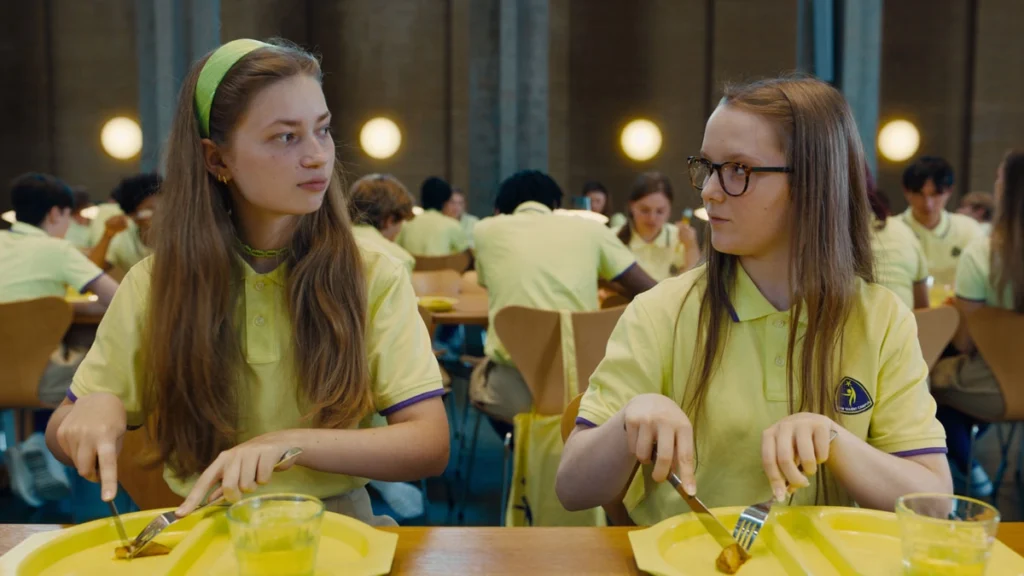If the film Club Zero (2023) had not been the only one shown at the Meeting Point Cinema during my visit to Sarajevo, it is safe to assume that I probably would never have watched this Cannes work. Except that I never found Mia Waskiowksa likable or interesting as an actress; the very theme of the film seemed too superficial and forced. Only the name of the director explained why this film was among the competition at last year’s Cannes.
Jessica Hausner stood out among critics with films such as (Little Joe, 2019) and Amour fou (2014). In the film Club Zero the director again chooses a rather cold and distant performance for its main character, which can probably be interpreted as an artistic style that gives it a certain credibility. Unfortunately, the story in which the main character finds herself is equally rigid and inaccessible.
The film takes place in an unidentified high school in an unidentified country, but the organisation is still drawn from the traditionally English educational culture, and the language of communication is English. The names of the students are of various origins, and their families mostly belong to the upper class. In their elite school, a new optional subject, Conscious Eating, is introduced. It has been included in the curriculum, because the woke parents like the latest fashion, and the principal is happy that the teacher, Mrs. Novak can take over school duties over the weekend. A win-win one would say.
Students who choose this program have all kinds of reasons. We meet them in an already predictable circle in which everyone gives their reasons for coming. The camera barely gives them time to say what’s on their mind before it continues its trajectory to the next person. Most in one way or another say they are attending the class in order to have more control – over their appearance, over their eating habits, over the environment and the capitalist world and consequently over their lives. Only Ben is present as he will receive extra credits to help him receive full tuition.
The question of class and financial ability runs through the film. The rich offspring are ready to starve themselves in their sterile luxury houses as they are served modern fusion food by a maid while they refuse (or throw up) it in protest. While Elsa and her mother grow closer by not eating, Ben refuses to refuse food that is lovingly served to him by his caring mother. She is also the first and loudest to complain about the manipulative and harmful practices of Club Zero. Unfortunately, in this elitist environment, no one takes her seriously.
The most disappointing thing about the movie Club Zero is that the entire plot can be predicted from the premise itself. Mrs. Novak will seduce the students with her apparent progressiveness, they will eat less and less until they get to the point where they don’t eat anything. Some will give up, some will get sick, but the most zealous will endure. When they finally see that the situation is critical, the parents will find an excuse to get rid of Mrs Novak, while their responsibility in creating the problem is swept under the carpet.
Although Hausner wants to tackle the important topics of today – the feeling of lack of control over their lives, ecology and environment of elites who are disconnected from their children as much as they are from the world around them. Hausner wants to address these topics, but either lacks the courage or capacity to do so. So in the end, there is only one completely forgettable, pointless film left.
